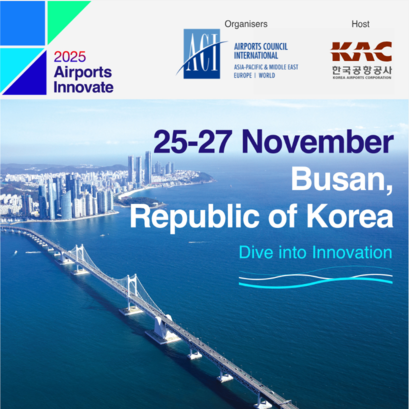
Planning for Omicron: Auckland Airport Ready to Play Its Part In Maintaining Critical Airlinks
- 2022-01-28
Auckland Airport is responding to growing community transmission of the COVID-19 Omicron variant with contingency plans underway to ensure the ongoing operation of the airport.
Auckland Airport is preparing to manage the 24/7 operation of its airfield and terminals with a higher-than-normal rate of absenteeism. This includes scenario planning for remaining open with more than 25% of business-critical staff unable to come to work.
Anna Cassels-Brown, General Manager Operations at Auckland Airport, said two years of working around the clock with the risk of COVID-19 had laid the foundation for Auckland Airport’s planning, but the highly infectious nature of new variants meant the strategy needed to evolve.
“Whether it’s having the skills to fight an aviation fire or direct a plane on the apron, many in our team are specialists performing unique roles that aren’t easily replaced or switched around. We need to have plans in place to mitigate not only the health risk to our staff, but also the operational risk to the aerodrome – so we can keep on providing those vital connections for people and essential goods,” said Ms Cassels-Brown.
“Our health and safety practices have served us really well to this point, but if we look overseas, we can see Omicron brings additional challenges particularly in managing shifts and rosters with high rates of staff off sick or needing to care for family members who are unwell.”
Auckland Airport currently manages around 90% of New Zealand’s international passenger arrivals and departures and air cargo, including the delivery of vaccines, PPE, and other time critical, high value goods.
“Whether it’s a handful of flights a day or hundreds, there is a minimum level of staffing and service required to safely keep the aerodrome open. Alongside us, there are dozens of other organisations that are essential to keeping the airport running. Often, they’re providing services like refuelling or aircraft waste removal – all the invisible operations that are vital in keeping travellers and freight moving in a smooth, timely, and safe way.
“Running the airport is a team effort and the whole system has been working together to ensure the airport keeps operating in an environment where we have Omicron.”
With the spread of Omicron and the shift to the Red traffic light setting, Auckland Airport has moved quickly to introduce new measures relating to workforce continuity, alongside existing measures. These include:
- Splitting the employees into work bubbles organisation-wide
- Vaccination requirements for all staff and visitors, including external contractors
- Splitting shifts into two or more operational “bubbles within a bubble”
- Excluding all visitors from safety critical workspaces including the Airport Emergency Service station, apron control tower, and operations centre
- Using high frequency RAT testing alongside nasal pharyngeal and saliva PCR surveillance testing.
“More than two years into this pandemic we are yet to have an Auckland Airport staff member become infected while at work, which is a testament to the character of our people and their meticulous approach to their own and their colleagues’ health and safety. However, we know the infectious nature of this new variant has reset the rules.”






